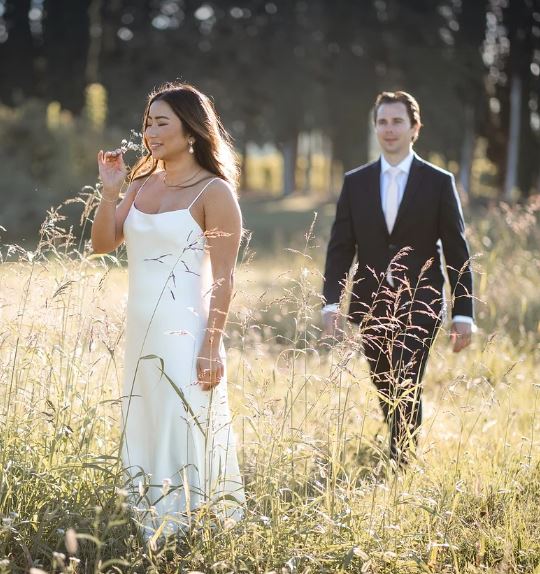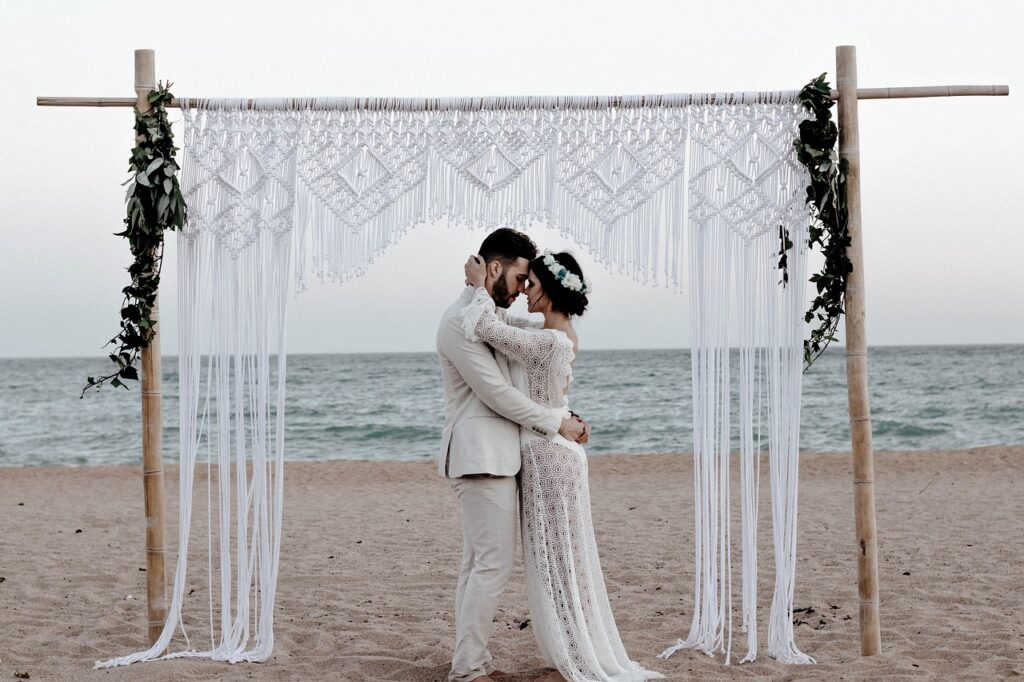Introduction to Alternative Wedding Traditions
As a couple planning your nuptials, you may find yourselves drawn to the idea of incorporating unique and unconventional elements into your special day. Traditional wedding ceremonies and receptions often follow a well-established script, but what if you crave something more personalized and reflective of your shared values and cultural backgrounds? Exploring alternative wedding traditions can be an enriching and fulfilling experience, allowing you to create a truly memorable and meaningful celebration.
In this article, we delve into the world of unconventional wedding rituals, uncovering the beauty and significance behind various cultural practices and offering creative ideas to help you craft a ceremony and reception that truly resonates with you and your partner.
Importance of incorporating alternative wedding rituals
Incorporating alternative wedding rituals into your special day can hold profound significance and offer numerous benefits. By embracing traditions that resonate with your beliefs and backgrounds, you create a deeply personal and authentic experience that reflects your unique love story. These rituals can serve as powerful symbols of unity, commitment, and the blending of cultures, creating a tapestry of meaning woven throughout your ceremony.
Moreover, alternative wedding rituals can foster a sense of community and connection. By inviting your closest friends and loved ones to participate in these meaningful traditions, you create incredible shared experiences and fond memories that will be cherished for years to come. These rituals can also serve as a bridge between generations, honoring the wisdom and customs of your ancestors while forging new paths for the future.
Traditional vs. alternative wedding rituals
Traditional wedding rituals often follow established norms and conventions that have been passed down through generations. While these traditions hold great cultural significance and can be deeply meaningful, they may not always resonate with every couple’s unique values and backgrounds.
Alternative wedding rituals, on the other hand, offer a refreshing departure from the conventional. They provide an opportunity to infuse your ceremony and reception with elements that truly reflect your personalities, beliefs, and cultural heritage. These rituals can range from ancient practices rooted in diverse cultures to modern, creative interpretations that celebrate your individuality as a couple.
Unique wedding rituals from around the world
The world is a tapestry of diverse cultures, each with its own rich tapestry of wedding traditions. Exploring these unique rituals can inspire you to incorporate elements that resonate with your own values and backgrounds. Here are a few examples to spark your imagination:
- Handfasting (Celtic): In this ancient Celtic tradition, the couple’s hands are symbolically bound together with a cord or ribbon, symbolizing their union and commitment to one another.
- Crowning (Greek): In Greek Orthodox weddings, the couple is crowned with stefana (crowns) to symbolize their new status as the “king and queen” of their new household.
- Unity Candle (Hispanic): In some Hispanic cultures, the couple lights a single candle from two individual candles, representing the merging of their lives into one.
- Mangala Sutra (Indian): In Hindu weddings, the groom gently ties a sacred thread surrounding the bride’s neck, symbolizing their eternal bond and his promise to care for her.
- Sake Sharing (Japanese): In traditional Japanese weddings, the couple shares a special cup of sake (rice wine) in a ritual known as san-san-ku-do, symbolizing their new bond and shared journey.
Unconventional wedding ceremony ideas 
If you’re seeking to infuse your wedding ceremony with unique and unconventional elements, consider incorporating some of these creative ideas:
- Handfasting Ceremony: Embrace the ancient Celtic tradition of handfasting, where your hands are bound together with a cord or ribbon, symbolizing your union and commitment.
- Unity Ritual: Instead of the traditional unity candle or sand ceremony, consider a unity ritual that reflects your shared interests or cultural backgrounds. For example, you could plant a tree together or blend different spices or teas.
- Personalized Vows: Rather than reciting traditional vows, write your own heartfelt promises to one another, reflecting your unique love story and aspirations for your marriage.
- Ceremonial Blessings: Invite loved ones or respected elders to offer blessings or words of wisdom during your ceremony, creating a meaningful and inclusive experience.
- Symbolic Rituals: Incorporate symbolic rituals that hold personal significance for you and your partner, such as a wine-blending ceremony, a salt covenant, or a tree-planting ritual.
Alternative wedding reception traditions
While the ceremony is often the focal point of a wedding, the reception can also be an opportunity to incorporate alternative traditions and create a truly unique celebration. Here are some ideas to consider:
- Interactive Food Stations: Lose the traditional sit-down dinner, consider offering interactive food stations that allow your guests to explore different cultural cuisines and culinary experiences.
- Cultural Performances: Incorporate traditional dances, music, or storytelling performances that celebrate your cultural heritage or shared interests.
- Unconventional Guest Activities: Engage your guests with unique activities that reflect your personalities, such as a DIY craft station, a game lounge, or a live music jam session.
- Meaningful Favors: Instead of traditional favors, offer your guests meaningful keepsakes that reflect your values or cultural backgrounds, such as handmade crafts, seeds for planting, or charitable donations in their honor.
- Alternative Dessert Traditions: Explore dessert traditions from around the world, such as a Mexican churro station, a Japanese mochi-pounding experience, or a French crêpe bar.
Pagan Wedding Traditions:
These ceremonies are deeply rooted in ancient practices and beliefs, reflecting a profound connection to nature and the cosmos. Traditions in Pagan weddings serve as tangible expressions of the couple’s spiritual journey, their vows, and the community’s support. Among these traditions, “jumping the broom” stands out as a particularly meaningful ritual.
Jumping the Broom
During a Pagan wedding, a broom is often elaborately decorated with ribbons, flowers, and symbols meaningful to the couple. It is placed on the ground, and after the couple exchanges their vows, they jump over the broom together, hand in hand. This is typically done at the end of the ceremony, symbolizing their leap into a new life as a married couple. The act is often accompanied by cheers and blessings from the gathered community, reinforcing the couple’s bond with their loved ones.
Calling the Quarters
Another significant tradition in Pagan weddings is the calling of the quarters. This involves invoking the four elements—earth, air, fire, and water—and their corresponding directions—north, east, south, and west—to bless the ceremony and the couple.
Incorporating alternative wedding rituals into your own ceremony
As you begin to plan your alternative wedding celebration, it’s essential to approach the process with an open mind and a willingness to explore new traditions. Here are some tips to help you incorporate alternative wedding rituals into your own ceremony:
- Research and Explore: Delve into the cultural traditions and practices that resonate with you and your partner. Read about their origins, symbolism, and significance to gain a deeper understanding and appreciation.
- <span data-preserver-spaces="true">Seek Guidance</span>: If you’re incorporating rituals from a specific culture or tradition, consider seeking guidance from elders, community leaders, or cultural experts to ensure you’re respectfully and accurately representing the practices.
- Personalize and Adapt: While it’s important to honor the authenticity of cultural traditions, feel free to adapt and personalize them to reflect your unique love story and values. The key is to approach these rituals with reverence and intention.
- Involve Loved Ones: Invite family members, friends, or respected elders to participate in your alternative wedding rituals. Their involvement can add depth and meaning to the experience, creating cherished memories for all.
- Communicate and Educate: As you plan your alternative wedding celebration, communicate openly with your guests about the significance of the rituals you’ve chosen. This can help them appreciate and understand the deeper meaning behind your choices.
Tips for planning an alternative wedding
Planning an alternative wedding can be both exciting and challenging. Here are some tips to help you navigate the process with ease: 
- Prioritize Your Values: Before diving into the planning process, take the time to reflect on your shared values, cultural backgrounds, and the elements that truly matter to you as a couple. This will help guide your decisions and ensure your wedding celebration is a genuine reflection of who you are.
- Set a Budget: Alternative weddings can sometimes require additional resources or specialized vendors, so it’s vital to come up with a realistic budget and allocate funds accordingly.
- Communicate with Vendors: When booking vendors, be upfront about your plans for an alternative wedding celebration. This will give them notice and help them understand your vision, ensuring they can accommodate your unique needs.
- Be Open to Compromise: While it’s important to stay true to your vision, be open to compromising on certain elements if necessary. Flexibility and open communication with your partner and loved ones can help navigate any challenges that may arise.
- Embrace Creativity: An alternative wedding is an opportunity to think outside the box and embrace your creativity. Don’t be afraid to experiment with unique ideas and customize elements that truly resonate with you as a couple.
Creative ways to personalize your alternative wedding
One of the greatest joys of planning an alternative wedding is the opportunity to infuse every aspect with personal touches that reflect your unique love story and shared interests. Here are some creative ways to personalize your celebration:
- Symbolic Favors: Instead of traditional favors, offer your guests meaningful keepsakes that represent your shared passions or cultural backgrounds. For example, if you’re avid hikers, you could gift miniature compasses or trail mix packets.
- Personalized Ceremony Rituals: Incorporate personalized rituals into your ceremony that hold special significance for you and your partner. This could include reading love letters to one another, exchanging symbolic gifts, or performing a meaningful act together.
- Themed Decor and Styling: Embrace a theme or aesthetic that resonates with your personalities and interests. Whether it’s a bohemian-inspired garden celebration, a vintage-themed soirée, a space inspired by Wicca decor, or a modern, minimalist affair, let your unique style shine through every detail.
- Interactive Guest Experiences: Engage your guests with interactive experiences that reflect your shared passions. This could include a DIY craft station, a live music jam session, or a collaborative art project that guests can contribute to throughout the celebration.
- Personalized Menus and Beverages: Curate a menu and beverage selection that showcases your favorite cuisines, local flavors, or culinary adventures you’ve shared together. Consider offering personalized cocktails or signature dishes that hold special meaning for you as a couple.
Take These Tips and Run With it!
Embracing alternative wedding traditions can be a beautiful and empowering way to create a celebration that truly reflects your unique love story and shared values. By exploring unconventional rituals and incorporating personal touches, you have the opportunity to craft a deeply meaningful and memorable experience for you, your partner, and your loved ones.
Remember, the key to planning a successful alternative wedding is to approach the process with an open mind, a willingness to embrace new traditions, and a commitment to staying true to your authentic selves. With creativity, thoughtfulness, and a touch of whimsy, you can weave a tapestry of love, culture, and individuality that will be cherished for years to come.
If you’re seeking inspiration and guidance for planning your own unconventional wedding celebration, consider reaching out to our team of experienced wedding planners. We specialize in curating personalized and meaningful ceremonies and receptions that reflect your unique love story and cultural backgrounds. From researching and incorporating alternative wedding rituals to creating custom-tailored experiences, we’re here to bring your ideal and genuine vision to life. Prepare to embark on the journey of crafting a truly unforgettable celebration.
The Article Alternative Wedding Traditions: Exploring Unconventional Rituals First Appeared ON
: https://ad4sc.com




Comments are closed